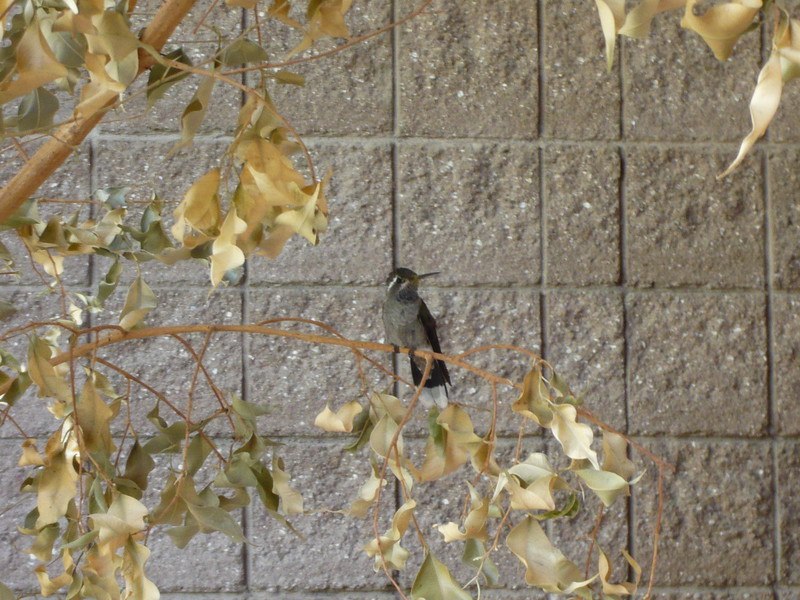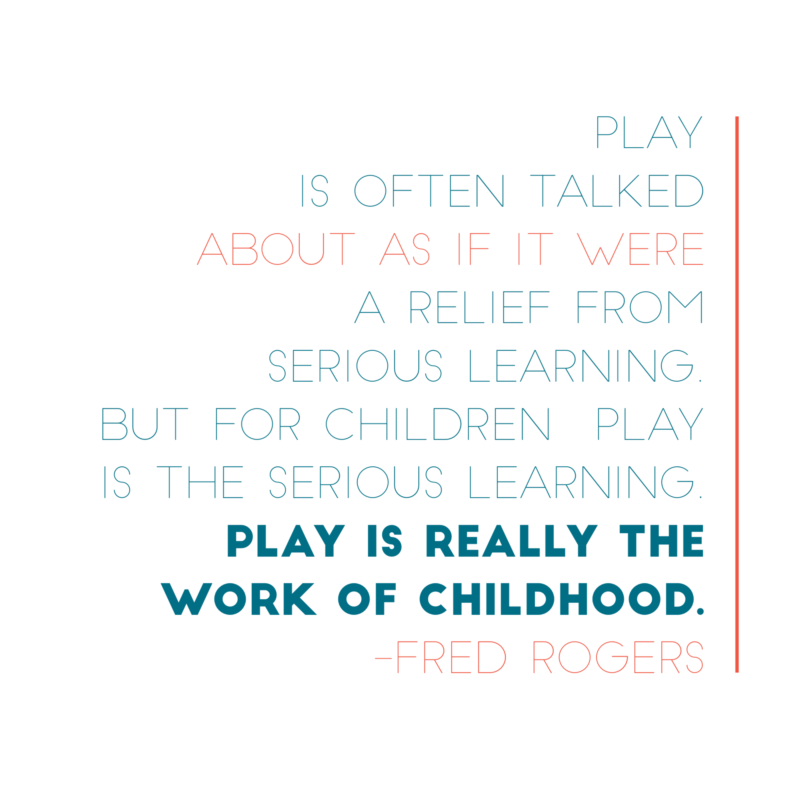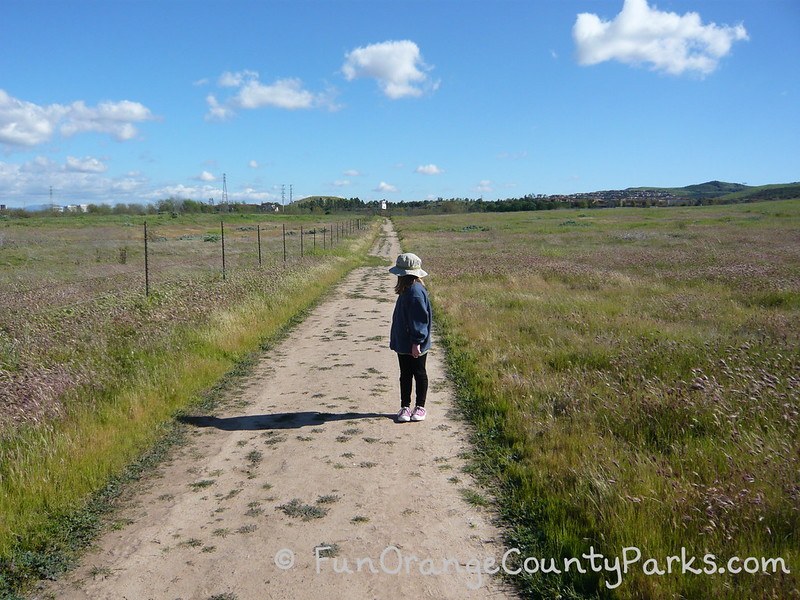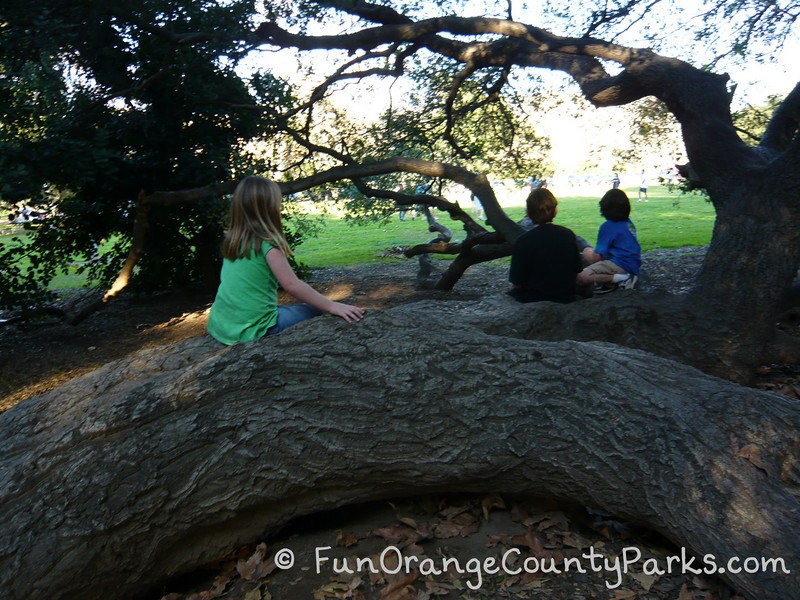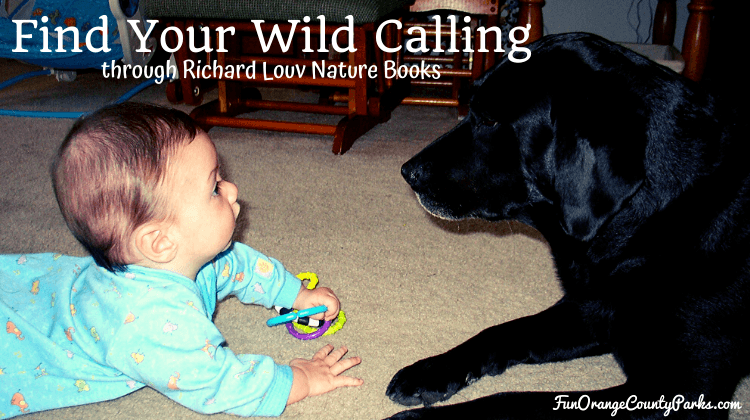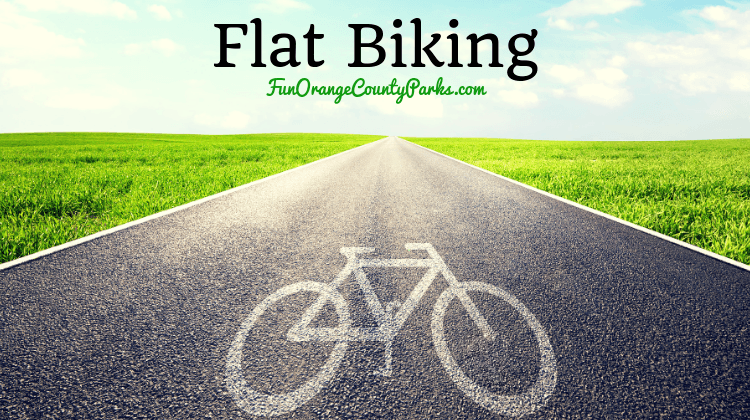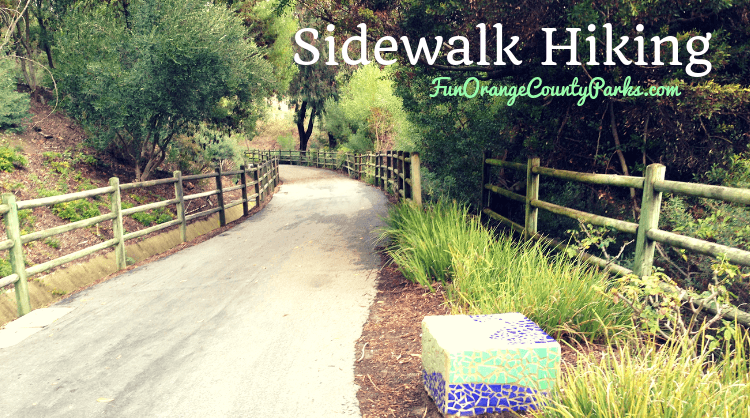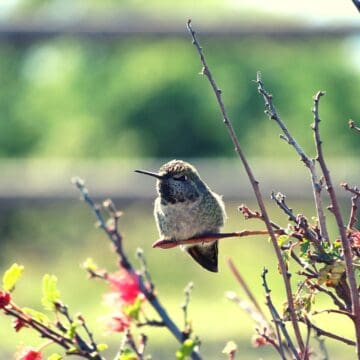Exploring how to be a "Hummingbird Parent" is the next step after learning the story and loose definition of Hummingbird Parenting.
Hummingbird parenting isn't anything new, it's just the name I gave to my personal parenting strategy when I got fed-up with the helicopter parenting bashing from the media or experts, many of whom weren't parents of young children or weren't feeling the direct impact of social pressure to be physically present while your children play outdoors.
Hummingbird parents give children time and space to play -- increasing physical distance as the children get older and can handle more risk on their own. The added bonus is that all this is done while addressing parental comfort levels -- which, in turn, addresses fear and safety concerns, too.
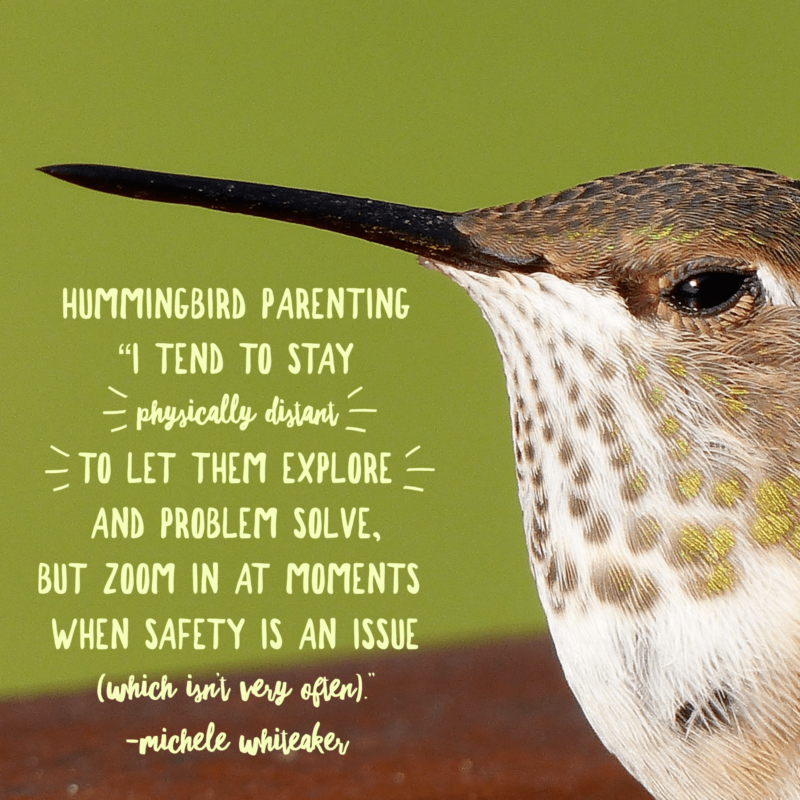
10 Ways to Be a Hummingbird Parent
To realize the benefits of "unsupervised" outdoor play - which isn't really possible anymore, my main strategy is for you to be conscious of the physical distance between you and your kids . . . and just keep taking steps back as they get older. I think the speed of the retreat is really up to your parental comfort level. Being physically distant doesn't mean you are neglecting or ignoring your kids, it's just about giving them a little space every once in a while to explore on their own and figure things out for themselves.
There are lots of ways to give your kids space and encourage play.
- Allow your children to take reasonable risks and allow them a level of autonomy that fits within your parental comfort zone. Only zoom in when necessary for safety.
- Resist the urge to figure things out for your kids. Let them try to figure things out for themselves first.
- Schedule unstructured play outdoors on your calendar (just like you would classes or organized sports).
- When you want to say "NO" -- Ask yourself "Why not?"
- Expand your definition of a playground. Stairs can be a playground. Nature can be a playground. A bike rack can be a playground.
- Be mindful of distractions that take away from the joy of parenting and model play.
- Avoid the use of screens as "shut up toys."
- Let your kids be bored.
- Find new places to play.
- Favor simple play props (blocks, cardboard boxes, tupperware, spoons, balls, and loose parts play).
I'll be getting into even more specific inspiration of activity ideas in the coming weeks. I want to make play EASY and fun for you, so that you do it more with your kids.
You don't have to summit Santiago Peak to get outdoors. A walk around the neighborhood is sufficient. You don't need to know the name of that Cooper's Hawk circling your neighborhood, you can just wonder at how that bird up there is flying in circles. Isn't that cool?
Hummingbird Parents Know Play Is Essential for Healthy Development
Why should you want to be a Hummingbird Parent in the first place? Well, I always say children have the following needs: home, eat, sleep, breathe, love, and PLAY. Outdoor play time just tends to get left out of the parenting equation these days because it's easier to stay home (I totally get it!).
But your kids do need that daily free play time and I find that once you get in the habit of going out, it makes the time at home easier. The kids are calmer, sleep better, and develop into happier and healthier human beings.
These are a few of the educational methods and philosophies that value play experiences as part of a healthy childhood in some shape or form:
- Montessori
- Waldorf
- RIE Method
- Simplicity Parenting
And First Five California spreads their campaign for Talk, Read, Sing because it's really as simple as that when it comes simple ways to help your baby's brain develop.
I only mention them because I didn't know about all of them until my kids were older than 5 - so I didn't realize there were schools and systems out there that valued play like me. None of them are a perfect fit for my style - but there are strategies from all of these philosophies that I can fold into my parenting.
What Barriers Do Hummingbird Parents Face?
In my personal pursuit to make sure children experience the benefits and joys of playing outdoors, I write this blog about parks which reaches over 300,000 families in my community every year. I informally asked some of my readers "What are your barriers to play?" Here’s a very brief version of their thoughtful and very personal answers:
- Too hot / No lights at night – shade trees trimmed right before summer, no shade covers
- Time – home late from work, packed weekend schedules, 2 parents work full-time, competing with screens/organized sports/social
- Fear – kids will roam too far, wildlife (snakes), judgment from others, stigma attached to letting kids play lightly supervised, kidnapping, “easier to keep them inside”
- Safety – pesticides/chemicals, playgrounds not maintained, drug users/mentally ill persons at park, theft or needles at campgrounds
- Lack of knowledge – hard-to-navigate city websites, no personal resource to help find nearby nature, need someone to coach them through where to go and what to do
- Access – transportation, cost of entry, no national park nearby, closed schoolyards, privatization of parks, limited hours of operation
When you think about being a hummingbird parent, it's a good idea to take a personal inventory of YOUR personal barriers to play. Some of those listed above might be a non-issue for you. Some of you are facing more serious struggles than those listed. For instance, if you are battling homelessness or just trying to survive -- then there isn't room to make play a priority.
Why Do We Even Need a Hummingbird Parenting Strategy
How does it feel to be a parent these days? To be honest, no matter how awesome I feel about our parenting while we are in the privacy of our own home — when I look at it from the outside it feels pretty crappy. I’ve read all the articles about how we’re doing it wrong:
- We’re overscheduling.
- We’re helicoptering.
- Our fears are unwarranted – look at the research.
- We suck at allowing risk in play.
- We have to fight against liability rules that prevent our kids from climbing trees, playing on the rocks, or even playing on school grounds after school.
- We have to fight against screens.
- We have to fight against preschools and Kindergartens that aren’t play-based.
- We have to fight against HOAs that don’t allow children to play in our neighborhood.
- We have to fight against social norms that say our kids should never be unsupervised.
- We have to fight to get recess before school starts. School days start standing in lines.
- We have to fight against entering competitive sports at young ages, because there are no developmental sports programs available after age 8.
- We have to fight the mindset/marketing that nature is to be conquered by climbing, summiting, hiking X number of miles, backpacking an infamous trail – solo/super fast/barefoot, or camping with limited resources in extreme weather. Can’t we just go to nature to relax for the day? No gear necessary?
- We have to fight for access — there’s a surge in private parks only open to homeowners, there are play deserts that never had a park to begin with, there are parks that become homes for those who have no home, there are public parks pushing out children in favor of privately run yoga/fitness classes, there is obviously a lack of nature in urban areas, summer camps are evolving into STEM and robotics – or even gaming – without many pure nature camps offered.
It's nothing new, I wrote about these feelings in my 2014 post called "What Happens When Your World Bans Play and You're the One Blamed for Bad Parenting?"
It’s all a fight. And what are we fighting for? Childhood.
Can Being a Hummingbird Parent Save Childhood?
I don't know.
But I do know that being a hummingbird parent is a good strategy for me. It helped me give my kids time and space to play outdoors, connect with nature on their own terms, assess risk by trying and failing at things, and it gave them space to figure out coping skills and resilience. Not to mention, the pretend play they engaged in when they were younger gave them the gift of critical thinking skills that they are still developing into their teens and adulthood.
Hummingbird parenting was the closest thing my husband and I could get to giving our kids the completely unsupervised freedom that make up some of the best memories of my own childhood.
I've learned that the biggest change you can make is in your own family life and your own family calendar. Make sure you X off time for play. You are the boss and you can prioritize play for your child.
The major shift that I've seen over the past few years is that more parents and caregivers are aware of these social pressures and they are up for the fight. "Bring it on!" they silently whisper to themselves and then voice their opinions defending their child's right to play by writing letters, signing petitions, presenting at park commission meetings, speaking up at homeowner association meetings and PTA meetings, and in thinking through the personal choices they make for their family.
I've heard parents who vocally defend their choice to ban screens from the lives of their 0-2 year olds against the "Aren't you worried that your child won't be prepared?" questions. In this New York Times article about how tech can wait at a Waldorf school in Silicon Valley, a parent who works at Google explains how technology can wait:
“It’s supereasy. It’s like learning to use toothpaste,” Mr. Eagle said. “At Google and all these places, we make technology as brain-dead easy to use as possible. There’s no reason why kids can’t figure it out when they get older.”
And there are countless other examples backing up our choices to make play the priority for childhood.
Hummingbird Parenting Challenge
This blog series is an exploration of parenting strategies that give our kids the gift of unstructured play. What can WE do — within our parental comfort zones — to give our children the freedom to play?
- Read the first post: Hummingbird Parenting Explained (Story & Definition)
- Read the next post: Sidewalk Hiking

